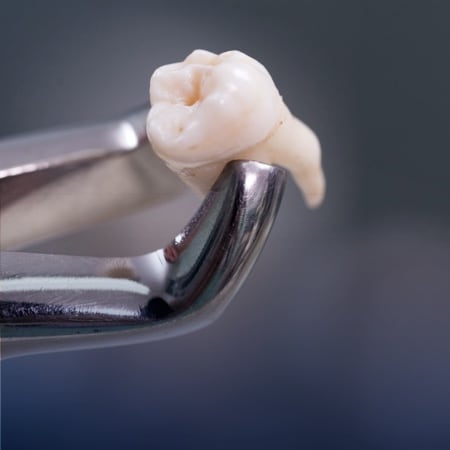Living with temporomandibular joint (TMJ) disorder can be an uncomfortable and, at times, uncertain experience. TMJ pain has many causes, and without knowing the source of your pain, it can be difficult to find relief.
The duration of TMJ disorder varies widely depending on several factors. For some, it may only last for a few weeks, while others might experience symptoms for months or years. Factors influencing the longevity of TMJ disorder include stress, posture, and the severity of the initial condition.
Everyone’s experience with TMJ disorder is unique. If your pain is persistent and affecting your daily life, it may be time to talk to a professional to learn about your options for treatment.
Understanding TMJ Disorder
“TMJ” refers to the temporomandibular joint, which connects your jawbone to your skull. When this joint isn’t functioning properly, it leads to what is commonly known as TMJ disorder. This condition affects people of all ages and can cause various symptoms, including jaw pain, headaches, and difficulty chewing.
Causes of TMJ Disorder
TMJ disorder can stem from different causes, and understanding these can help in managing the condition effectively. There are several types of TMJ disorders, each with its own set of triggers.
- Excessive clenching and teeth grinding: Often due to stress, this can put undue pressure on your jaw joints and muscles.
- Injury or disease to the joint: Trauma or conditions like arthritis can damage the joint.
- Poor posture: Habitually slouching can affect the alignment of your jaw.
Other potential causes include habits like nail-biting, chewing gum excessively, and even genetics.
How Do You Know if You Have TMJ Disorder?
Recognizing the symptoms of TMJ disorder can lead to faster diagnosis and treatment. Common symptoms include:
- A misaligned bite
- Jaw pain or tenderness
- Clicking or popping noises when you open your mouth
- A locked jaw, making it difficult to open or close your mouth
If you experience any of these symptoms, it’s worth consulting a professional. Other signs to watch out for include earaches, headaches, and dizziness.

Factors Affecting the Longevity of TMJ
The duration of TMJ disorder can vary significantly from person to person. For some individuals, symptoms may subside within a few weeks, while others may face ongoing issues that last for months or even years. Several key factors can affect how long TMJ disorder lasts:
- Severity of symptoms: Individuals with more severe pain or dysfunction may experience longer-lasting symptoms, while mild cases might resolve more quickly.
- Underlying causes: The root cause of your TMJ disorder plays a significant role. For instance, if an injury causes your TMJ pain, the recovery time may be longer compared to stress-related issues.
- Treatment approaches: Engaging in appropriate treatment options, such as physical therapy, dental splints, or stress management techniques, can help shorten the duration of TMJ symptoms. Those who proactively manage their condition often experience quicker relief.
- Lifestyle factors: Habits such as teeth grinding or clenching can prolong symptoms. Addressing these habits through lifestyle changes can significantly reduce the duration of TMJ disorder.
- Emotional stress: High levels of stress can exacerbate symptoms, leading to a longer recovery time. Incorporating relaxation techniques can be beneficial in managing stress-related TMJ disorders.

Can TMJ Disorder Go Away on Its Own?
The outlook for TMJ disorder varies from person to person. In many cases, symptoms can subside over time, especially with proper treatment and lifestyle adjustments. Practicing good posture, avoiding extreme jaw movements, and managing stress can significantly reduce symptoms.
Effective treatments can improve your quality of life dramatically. With the right approach, many people find their TMJ disorder becomes manageable or even goes away entirely.
How Is TMJ Disorder Treated?
Fortunately, there are several TMJ treatment options available today. Treatment can range from simple self-care practices to medical interventions. Some common approaches include:
- Self-care: Applying ice packs, eating soft foods, and practicing stress-relief techniques can help ease symptoms.
- Medications: Over-the-counter pain relievers or anti-inflammatory drugs can provide pain relief.
- Physical therapy: Exercises to strengthen jaw muscles and improve posture can be beneficial.
- Dental splints or mouth guards: These can prevent teeth grinding and reduce jaw tension.
Surgical Treatments for TMJ Disorder
When conservative treatments fail to provide adequate relief, surgical options for TMJ disorder may be explored. These procedures aim to address the underlying structural issues within the temporomandibular joint. However, surgery is typically considered as a last resort.
Surgical treatments include:
- Arthrocentesis: This is a minimally invasive procedure where a needle is used to flush out the joint. It’s often done to relieve pain and improve mobility.
- Arthroscopy: In this procedure, a thin tube with a camera is inserted into the joint space, allowing the surgeon to diagnose and treat issues such as inflammation, scar tissue, or displaced cartilage.
- Open joint surgery: This option involves a larger incision to access the joint. It is typically reserved for severe cases where there are significant structural abnormalities, such as tumours or advanced arthritis.
- Joint replacement: In extreme cases where the joint is severely damaged, partial or total temporomandibular joint replacement may be necessary. This is a more complex procedure and requires careful evaluation.
Is It Time to See a Professional About TMJ?
If you’ve been dealing with TMJ pain and home remedies aren’t cutting it, it might be time to consult a professional. Seeking advice from specialists like our team at CVOS Oral Surgery can provide you with tailored treatment options that address your specific needs.
Navigating TMJ disorder doesn’t have to be a solo endeavour. With the right information, support, and treatment, you can find relief and reclaim your peace of mind. Contact CVOS Oral Surgery to learn more about how we can help with surgical treatments for TMJ disorder.









